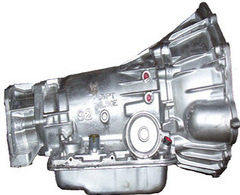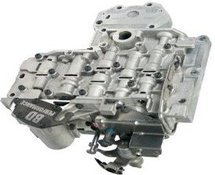Smart Automatic Transmissions
Smart Automatic Transmissions

Some drivers do not realize how smart automatic transmissions are in modern vehicles. This is one of the few systems on the automobile that actually learns what the driver wants and how they normally act. After studying the driver’s long-term and short-term habits the transmission control module does its best to deliver what the driver expects.
Smart automatic transmissions are able to change gears automatically in response to operating conditions as well as the driver’s habits. The transmission computer monitors the condition of the engine and compensates for any changes that are required for optimal performance and fuel economy.
At the same time it also memorizes the typical driving style of the primary driver. With this information the TCM can adjust the timing of the shifts by controlling the valve body and even the converter clutch lock up engagement to provide what is required by the driver at the appropriate time.
What else can a Smart transmission do
The transmission control module in conjunction with the power train control module learns the characteristics of the transmission and changes its programming accordingly. It learns the release an application rates of various internal components under various operating conditions. In the automotive industry this is known as adaptive learning capabilities.
These smart automatic transmissions are also capable of compensating for internal wear and defects that might cause the normal shift routine to be inefficient. This adaptive learning allows for the best possible operation and shift feel throughout the life of the transmission. As the transmission gets older and the seals harden they may start to bleed off pressure.
In this instance total line pressure can be increased to compensate for the internal transmission problem. Other things can also be compensated for such as normal wear conditions like worn friction discs and scored friction plates. The smart transmission is able to compensate for these things automatically.
Common problem with Smart transmissions

As internal components begin to wear shift overlapped times may increase. The transmission control module is able to adjust line pressure to maintain proper shift points and calibration by manipulating the valve body. On some models the control module can read input parameters and provide output signals at over 100 times per second.
Direct battery voltage is applied to both the power train control module and the TCM. If the computer loses this source voltage the transmission on some vehicles may enter a limp home mode. On some models the vehicle will stay in second gear and not up shift or downshift. When the vehicle battery is replaced and is disconnected for some time these modules may lose their learned memory.
A small capacitor is usually included in the circuit to provide voltage during a battery disconnect. When you’re control module loses their learned memory and a new battery is then connected these modules will have to relearn everything. To the driver when they get back into the vehicle things may feel different until the smart automatic transmission re-learns the driver’s habits and can once again adapt to the internal conditions of that particular transmission.
Often as a mechanic after a battery replacement sometimes the driver will come back and say my car just doesn’t feel the same. In most cases it will take a couple of days of driving for your automatic transmission to become smart again.
If you’re interested in learning about transmissions I have built a repair module on my you fix cars website that talks about not only the theory of operation but also specific problems with automatic transmissions. If you would like to see the latest posts on this blog this next link will take you to the homepage from this page about smart automatic transmissions.

